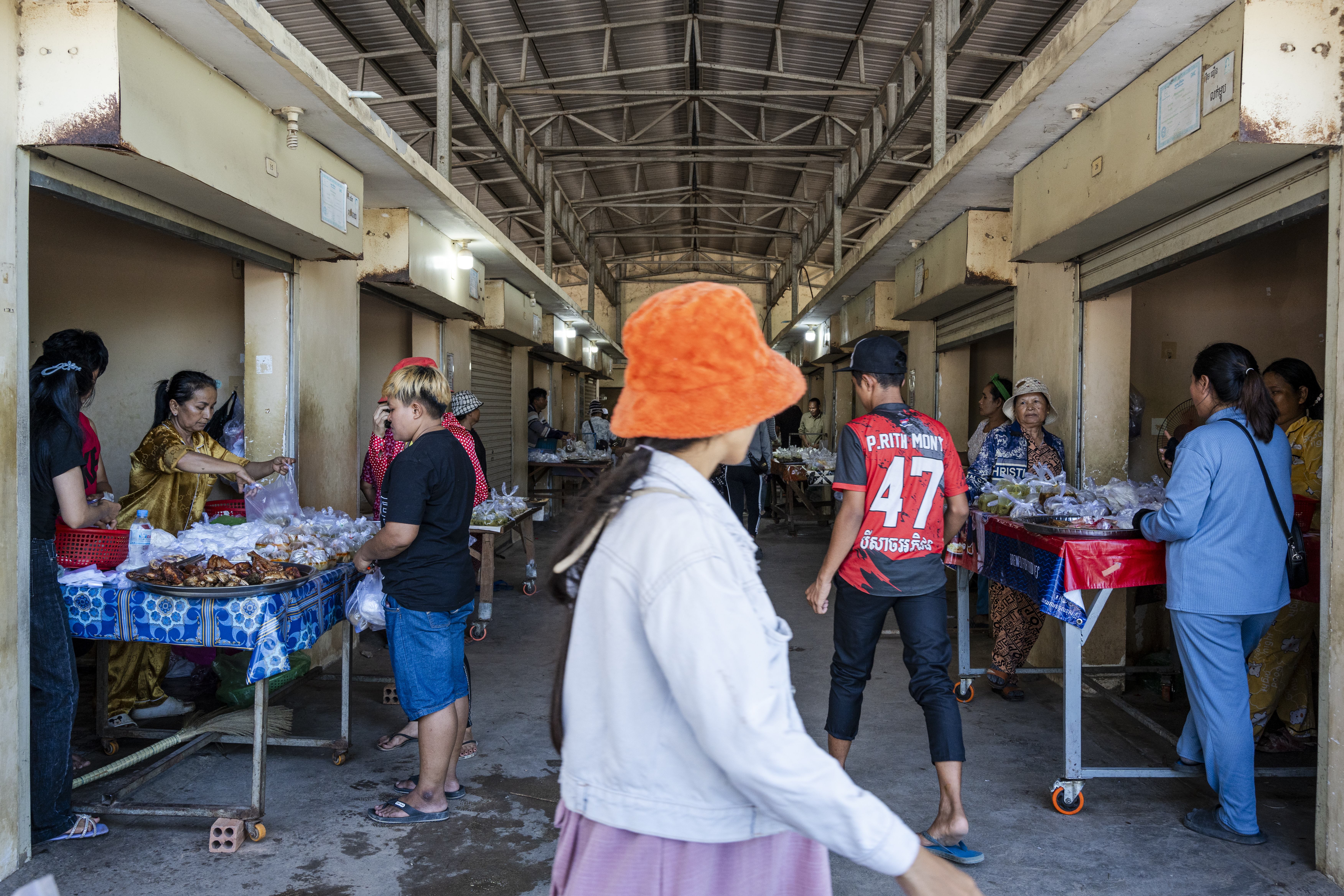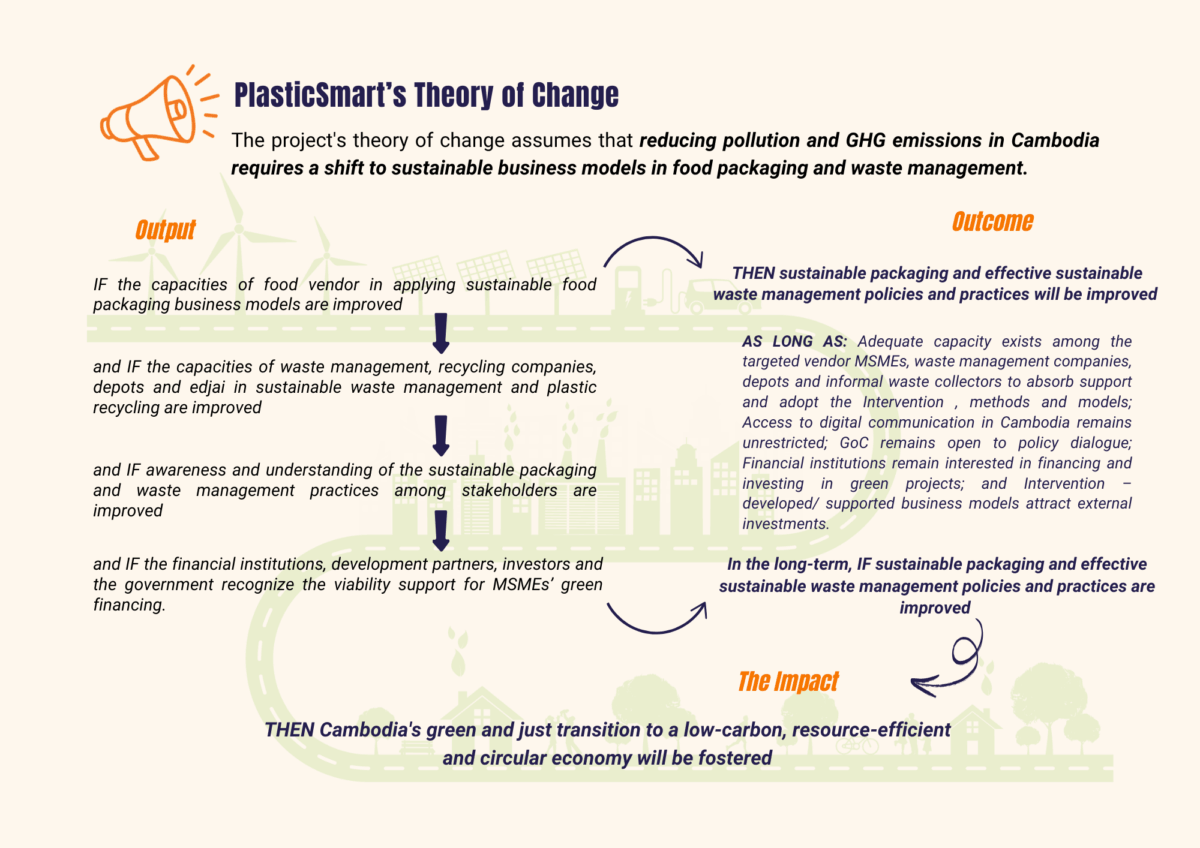The growth in waste disposal isn’t accompanied by sufficient management and with major landfills located in open spaces, surrounding communities are exposed to inexorable health and environmental hazards. In the pre-2020 data from the SEA Circular, plastic accounts for 20% of the municipal solid waste in Cambodia, with estimated 10 million plastic bags used every day in Phnom Penh alone.
In the factory setting, plastic packages for food are particularly at high consumption. CARE and local partners, under the SWITCH-Asia programme implement the PlasticSmart Cambodia to focus on food vendors around selected garment factories who will be offered environmentally and economically sustainable alternatives to the current food packaging business models.
The project aims to develop and pilot sustainable, competitive models for food packaging, waste management, and recycling. It will provide food vendors with access to eco-friendly packaging materials while equipping waste management stakeholders with improved solutions, enhanced business communication, and modernized equipment for waste management and plastic recycling.


